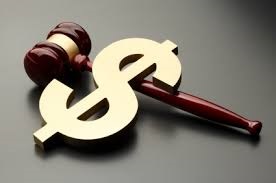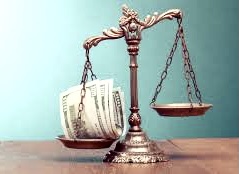
AM Gold Inc. v Kaizen Discovery Inc. 2022 BCCA 284 reviewed the law on an award of special costs and in particular found that dishonest testimony in itself does not warrant such an award of punitive costs.
Special costs are usually awarded when one party has engaged in reprehensible conduct: Young v. Young, [1993] 4 S.C.R. 3 at 134.
While a special cost award provides a greater degree of indemnity against its actual legal expenses, in the ordinary course “[s]pecial costs are not compensatory; they are punitive”: Smithies Holdings Inc. v. RCV Holdings Ltd., 2017 BCCA 177 at para. 56. They are typically awarded to address conduct in the course of the litigation that is deserving of censure and rebuke: Grewal v. Sandhu, 2012 BCCA 26 at para. 106, leave to appeal ref’d [2012] S.C.C.A. No. 120.
While special costs are usually awarded for the whole proceeding, it is open to a judge to make a partial award if it would be disproportionate to award special costs for the entire proceeding: Gichuru v. Smith, 2014 BCCA 414 at para. 91, leave to appeal ref’d [2014] S.C.C.A. No. 547.
The seminal test for special costs was set out in Garcia v. Crestbrook Forest Industries Ltd. (1994), 9 B.C.L.R. (3d) 242 (C.A.), where Lambert J.A., after an extensive review of the authorities, concluded:
[17] … it is my opinion that the single standard for the awarding of special costs is that the conduct in question properly be categorized as “reprehensible”. As Chief Justice Esson said in Leung v. Leung, the word reprehensible is a word of wide meaning. It encompasses scandalous or outrageous conduct but it also encompasses milder forms of misconduct deserving of reproof or rebuke. Accordingly, the standard represented by the word reprehensible, taken in that sense, must represent a general and all encompassing expression of the applicable standard for the award of special costs.
An award of special costs is discretionary and it does not follow as a matter of right from a conclusion that a party’s conduct is deserving of rebuke: Walker v. John Doe, 2014 BCSC 294 at para. 57.
Misconduct can constitute “unusual circumstances” causing ordinary costs to be “grossly inadequate or unjust”, thereby justifying an uplift of costs under s. 2(5) of Appendix B: 380876 British Columbia Ltd. v. Ron Perrick Law Corp., 2009 BCSC 1209 at para. 37; Luu v. Wang, 2012 BCSC 626 at para. 65; Walker at para. 62. This may include conduct by the unsuccessful party in the litigation which falls short of attracting an award of special costs: On Call Internet Services Ltd. v. Telus Communications Company, 2010 BCSC 1031 at paras. 7–11.
An unsuccessful attempt to prove fraud or dishonesty on a balance of probabilities does not lead inexorably to the conclusion that the unsuccessful party should be held liable for special costs, since not all such attempts will constitute conduct deserving of rebuke. However, allegations of fraud and dishonesty are serious and potentially very damaging to those accused of deception. When a party makes such allegations unsuccessfully at trial despite having access to information sufficient to conclude the other party was neither dishonest nor fraudulent, special costs are appropriate: Hamilton v. Open Window Bakery Ltd., 2004 SCC 9 at para. 26.
[ Dishonest testimony alone is not sufficient to warrant an order for special costs. There must be something more egregious in the impugned conduct for it to be considered reprehensible: Gill v. Bassi, 2016 BCSC 754 at para. 15. There is a distinction between evidence that is rejected by the court and evidence that was intended to mislead or was given with an improper motive; only the latter warrants rebuke in the form of an order for special costs: Westsea Construction Ltd. v. 0759553 B.C. Ltd., 2013 BCSC 1352 at paras. 70–73; Mayer v. Osborne Contracting Ltd., 2011 BCSC 914 at paras. 12–15. The evidence must be considered from the perspective of the person giving the evidence at the time they testified or at the time the allegations were made.
In Behan v. Park, 2014 BCSC 1982, Justice Voith, set out three factors that identify testimony worthy of a rebuke in the form of an order for special costs:
[49] … where a party gives:
i. false evidence that has been contrived, concocted or fabricated;
ii. with an intention to mislead;
iii. on an issue that is central to the matter before the court, and, which if accepted, would “drive [the opposing party] from the judgment seat”.
[ The Court can award costs against a non-party pursuant to its inherent jurisdiction: Oasis Hotel Ltd. v. Zurich Insurance Co. et al. (1981), 124 D.L.R. (3d) 455 at 462 (B.C.C.A.). Such an order is exceptional and should only be made in special circumstances: Perez v. Galambos, 2008 BCCA 382 at para. 17, rev’d on other grounds 2009 SCC 48.
[62] Special costs may be awarded against a non-party where:
a) the non-party stands behind the nominal litigant and can be taken to be the promoter of and to have a direct interest in the litigation: Interclaim Holdings Ltd. v. Down, 2002 BCCA 632 at para. 46, additional reasons 2003 BCCA 201;
b) the non-party engaged in deceptive or fraudulent conduct, abuse of process, or gross misconduct in the commencement or conduct of the litigation: International Hi-Tech Industries Inc. v. FANUC Robotics Canada Ltd., 2007 BCSC 1724 at para. 54; and
c) the non-party has put up a straw man to prosecute the claim and is the “real litigant”: Anchorage Management Services Ltd. v. 465404 B.C. Inc., 1999 BCCA 771 at para. 21.
C. Standard of Review
An award of costs, including the appropriate scale of costs, is subject to a wide measure of discretion. This Court should not interfere with that discretion unless the judge misdirected themselves on the applicable law, made an error in principle, made a palpable error in assessing the facts, or otherwise made an award that is so clearly wrong as to amount to an injustice: Hamilton at para. 27; Tanious v. The Empire Life Insurance Company, 2019 BCCA 329 at para. 33.
Mr. Justice Joyce, in Hung v. Gardiner, 2003 BCSC 285, aff’d 2003 BCCA 256, addressed the question raised in the present case, namely, when can it be said that the plaintiff acted reprehensibly in pursuing unmeritorious claims:
In order to justify an award of special costs, it is not sufficient simply to establish that the plaintiff’s allegations of bad faith and malice were not proven. It is necessary to show that the plaintiff acted improperly in making or maintaining the allegations in this proceeding or otherwise acted improperly in the manner in which she conducted the litigation before special costs will be awarded. It must be shown, not just that the allegation was wrong, but that it was obviously unfounded, reckless or made out of malice. The matter must be considered from the point of view of the plaintiff at the time she made or maintained the allegations.
Justice Joyce’s comments in Hung have been cited with approval in this Court: Cimolai v. Hall, 2007 BCCA 225 at para. 68; Animal Welfare International Inc. v. W3 International Media Ltd., 2016 BCCA 372 at para. 49, additional reasons 2016 BCCA 489.




